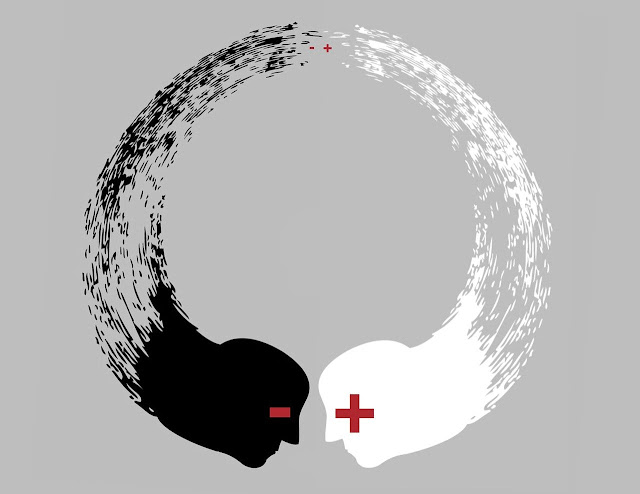Within the realms of philosophy and conceptual frameworks, the terms "duality" and "polarity" are frequently employed to explain the relationship between opposing or contrasting forces or concepts. Although these terms may exhibit variations based on specific contexts, understanding their distinctions can enhance our comprehension of their roles and implications. This article aims to shed light on the dissimilarities between duality and polarity, uncovering the nuances that characterize these concepts and their applications.
Duality: Recognizing Interconnected Complementarity Duality encompasses the existence of two fundamental or opposing elements or principles that are intrinsically interconnected or interdependent. It underscores the interwoven nature of these elements and acknowledges their complementary aspects. In this context, duality often presents itself as two sides of the same coin, emphasizing their mutual reliance. Various examples of duality include light and dark, yin and yang, good and evil, and mind and body. By acknowledging duality, we embrace the notion of unity and strive for balance through the coexistence of these opposing forces.
Polarity: Embracing Contrast and Distinctness Polarity, in contrast, refers to the relationship between two extreme or contrasting ends of a spectrum or continuum. It delineates the existence of two opposite poles or endpoints that are perceived as distinct and separate entities. Polarity highlights the contrast, difference, or tension between these poles, often presenting them as mutually exclusive or in opposition to one another. Instances of polarity can be observed in domains such as magnetic poles (north and south), electric charge (positive and negative), and philosophical concepts like subjective and objective, nature and nurture, and individual and society. By acknowledging polarity, we acknowledge the contrasting nature of two extremes and the inherent tension between them.
Utilizing Duality and Polarity: Applications and Implications The concepts of duality and polarity offer valuable lenses through which to examine and analyze different aspects of reality. While duality emphasizes interconnectedness and complementarity, polarity accentuates contrast and distinction. Both concepts contribute to our understanding of the complex dynamics within the world, albeit through different perspectives.
Duality, with its focus on harmony and balance, provides insight into the unity that underlies apparent opposites. It encourages us to perceive the interconnectedness of all things, transcending rigid categorizations and fostering a holistic outlook. Embracing duality can lead to a deeper understanding of ourselves and the world, nurturing a sense of unity amidst diversity.
On the other hand, polarity invites us to recognize and navigate the contrasting nature of extreme poles. By acknowledging the tension and opposition, we can gain a richer understanding of the forces at play in various domains. Polarity encourages us to seek equilibrium by acknowledging and embracing the diversity of perspectives and experiences.
Conclusion Duality and polarity are valuable conceptual tools that enrich our understanding of the interplay between opposing or contrasting forces. Duality emphasizes interconnectedness and harmony, underscoring the unity and balance achieved through the coexistence of opposing elements. Polarity, on the other hand, draws attention to contrast and distinction, highlighting the tension and distinctness between extreme poles. By embracing these concepts, we can broaden our perspective, navigate complex dynamics, and foster a more comprehensive understanding of ourselves and the world around us.
Resources
- Book: "The Book: On the Taboo Against Knowing Who You Are" by Alan Watts
- Book: "The I Ching or Book of Changes" translated by Richard Wilhelm

Comments
Post a Comment